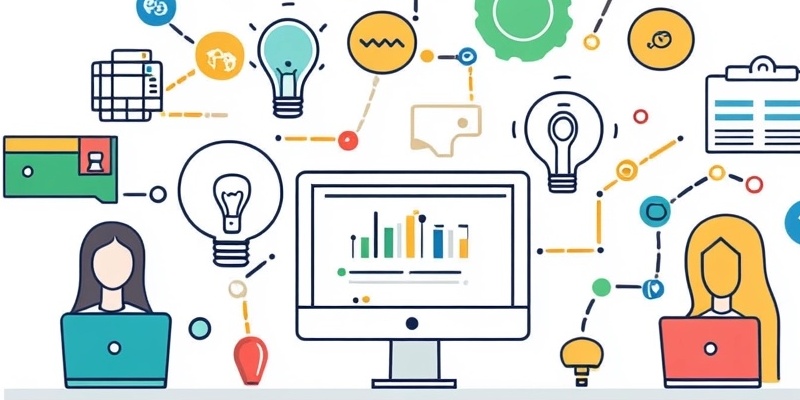Zendesk, a prominent customer service platform in Australia and New Zealand, has recently unveiled Relay, a cutting-edge application aimed at elevating customer communications through WhatsApp and SMS. This groundbreaking innovation is specifically designed to meet the growing consumer demand for conversational commerce, a trend underscored in the Zendesk CX Trends Report. The report reveals that more than half of consumers now expect comprehensive assistance through chat channels. Despite this rising expectation, many Australian organizations admit their shortcomings in delivering such services. Relay seeks to bridge this gap by enhancing the personalization and targeting of messages, utilizing dynamic content and audience data to keep customers satisfied and loyal.
Addressing the Gap in Customer Communications
Enhancing Message Personalization and Targeting
Zendesk’s Relay initiative aims to address the existing gap in customer communications by significantly improving message personalization and targeting. By leveraging dynamic content and audience data, administrators can craft custom message templates directly within the Zendesk platform. These templates are subsequently submitted for approval by Meta, ensuring compliance and quality. This enhanced customization not only improves customer loyalty and satisfaction but also drives sales through proactive and relevant communication. Zendesk’s commitment to this approach reflects a deeper understanding of the customer’s needs in a rapidly evolving digital landscape.
Kellie Hackney, Zendesk’s Country Leader for Australia and New Zealand, emphasized the critical necessity for businesses to connect with their customers via timely and preferred communication channels. In a competitive market, maintaining customer engagement through personalized and prompt messages can make a significant difference in retaining customer loyalty and driving business growth. By utilizing Relay, businesses can now ensure that their communication strategies are aligned with consumer preferences, making interactions more meaningful and impactful.
Real-Time Personalized Communication
In the realm of customer service, real-time, personalized communication is no longer a luxury but a necessity. Mike Keohane, Zendesk’s Regional Vice President of Business Development, highlighted the importance of proactive messaging to meet and exceed consumer expectations. Such communication ensures that timely information is delivered through trusted channels, ultimately enhancing customer engagement and fostering long-term loyalty. Relay empowers businesses to send a variety of notifications, such as incident reports, exclusive invites, and feedback requests, via WhatsApp, thereby keeping customers well-informed and engaged.
Proactive communication, as enabled by Relay, is more than just sending messages. It’s about anticipating the needs of the customer and providing them with relevant information before they even realize they need it. This approach not only enhances the customer experience but also reduces contact volumes. Research from Forrester indicates that proactive communication can lower future contact volumes by up to 25 percent while simultaneously increasing customer satisfaction by 20 percent. This dual benefit of reducing operational load and boosting customer satisfaction underscores the strategic importance of Relay in modern customer service.
Strengthening Collaborations and Strategic Tools
Partnerships with Meta and Twilio
Zendesk’s launch of Relay is part of a broader strategic effort to strengthen its collaboration with Meta’s WhatsApp and SMS providers like Twilio. These partnerships are specifically tailored to empower customer service teams with the necessary tools for proactive communication, ensuring that vital updates are delivered before customers seek them out. The integrated approach between Zendesk and these leading communication platforms enables businesses to maintain seamless and effective customer interactions, which are critical in today’s fast-paced digital world.
The collaboration with Meta and Twilio is pivotal in enhancing the functionality and reach of Relay. By integrating with widely used platforms such as WhatsApp, businesses can tap into existing user bases and deliver communication through channels that customers already trust and use. This integration not only broadens the reach of proactive messages but also ensures that communications are received in a timely and secure manner. It’s a strategic move that aligns with the growing trend of using established digital ecosystems to enhance customer service capabilities.
Availability and Impact on Customer Experience
Zendesk, a leading customer service platform in Australia and New Zealand, has recently launched Relay, an advanced application designed to enhance customer communication via WhatsApp and SMS. This innovative tool addresses the rising consumer demand for conversational commerce, as highlighted in the Zendesk CX Trends Report. The report indicates that over half of consumers now anticipate extensive support through chat channels. Despite this growing expectation, many Australian companies acknowledge their struggles in providing such services effectively. Relay aims to fill this gap by improving message personalization and targeting. It leverages dynamic content and audience data to ensure customers remain satisfied and loyal. Relay’s introduction is poised to transform the way businesses interact with their customers, ensuring more efficient and engaging communications. By focusing on personalized messages and utilizing the power of WhatsApp and SMS, Zendesk’s new application could set a new standard for customer service, making it easier for companies to meet modern consumer expectations.

